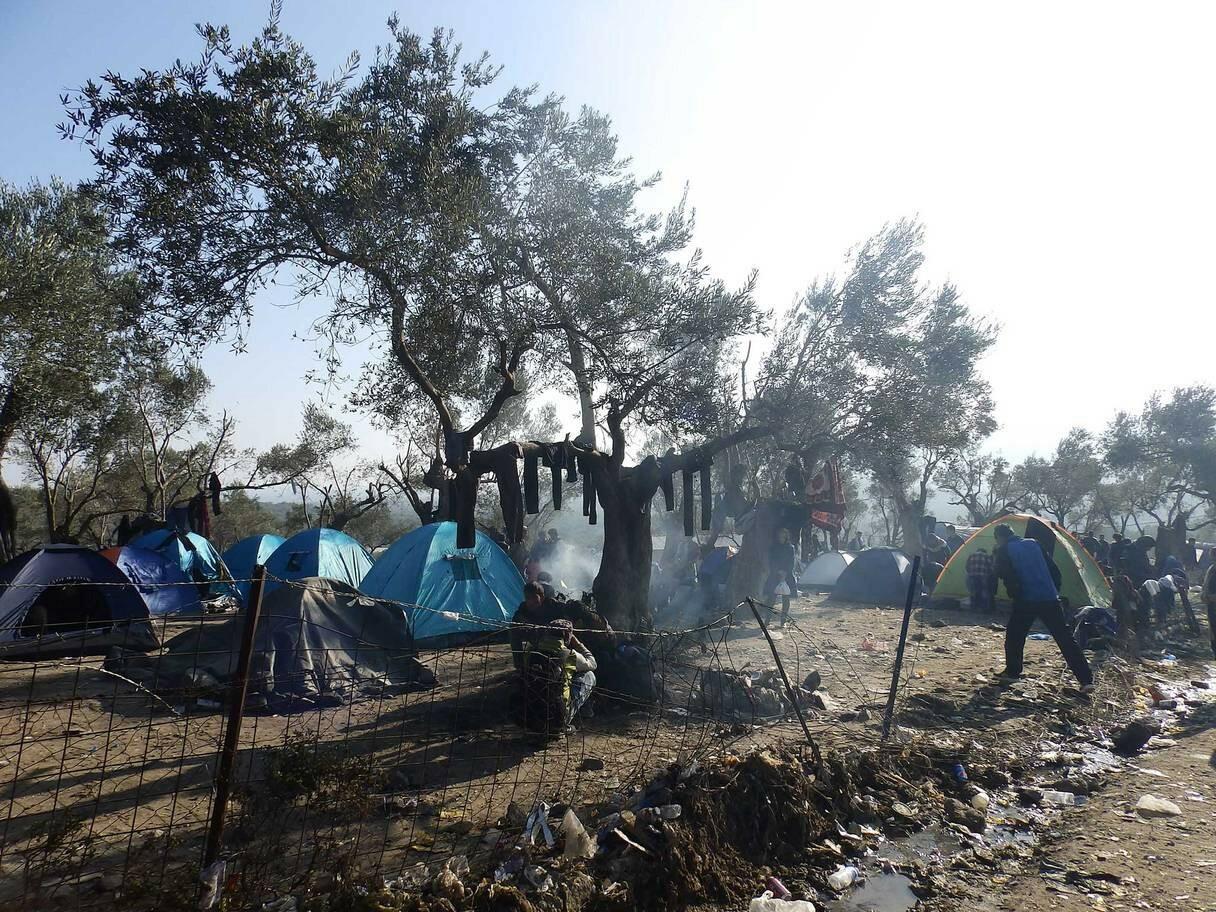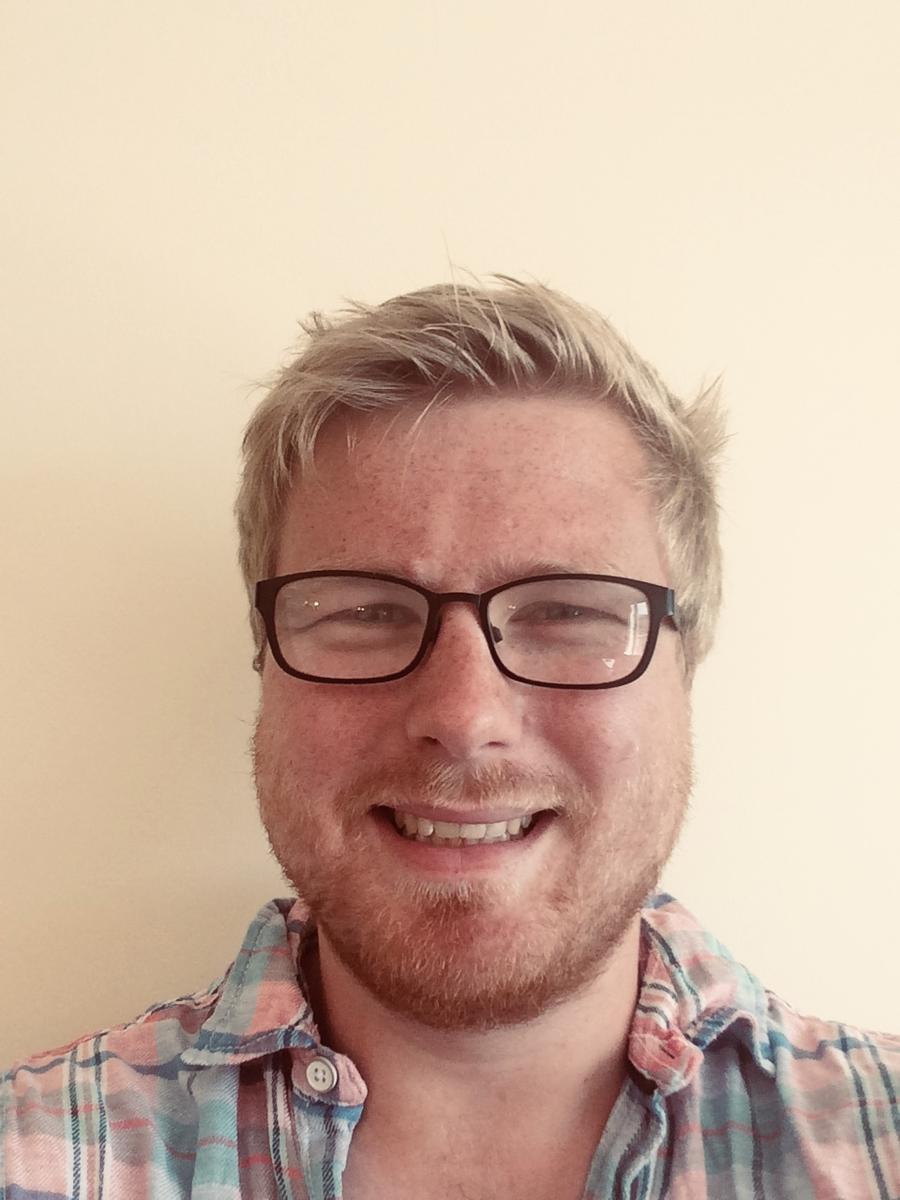

Experiences as a junior doctor in Greece’s largest refugee camp
9,000 refugees live in the Moria refugee camp but it is a home to no-one.
Grace sits opposite me. She wears a fearful, pained expression. Casts furtive glances around the small portacabin. We’re centimetres apart, but the unfathomable distance is created by her experience. The room seems busier for her than for me. Grace has just arrived in camp. This is her first visit to a doctor. Slowly, she begins to speak. There are many physical complaints: headaches, dizziness, abdominal pain. She hears voices at all times: this time they will finish the job; she will never be safe. Every night her scars burn and she relives rape and torture.
We sit for an hour. She tells me what she feels and lives each day. Gradually growing more comfortable, she talks of the flashbacks and voices she hears.
Little can be done to help. A single vulnerable woman in a refugee camp suffering from reactive psychosis secondary to a lifetime of personalised abuse. The severity of her symptoms indicate anti-psychotics and I refer her to MSF (who can see only the most severe cases, and even then with significant delays). She’s accepted for ongoing psychiatric input.
In September 2018 I volunteered as a junior doctor with the Boat Refugee Foundation, a Dutch NGO providing medical care, psychological support and education for children and adults at the Moria refugee camp on the island of Lesbos, Greece. Our team worked between 5pm and midnight when no other medical teams are available to the refugees.
For three weeks I encountered stories like that of Grace. Each individual experience of torture is unique, yet that horror is a commonality shared by the majority of patients who attended the clinic. Sometimes it happens in your native country. Sometimes on the journey looking for safety.
Approaching the camp, the road drags slowly upwards, crowding and crowding to a vast muddle of humanity. The camp sits in an olive grove, where 9000 people must eat, sleep and try to do more than merely exist within a few hundred square metres. They have arrived from broken countries destroyed by war, safety an unimaginable luxury. They’re searching for a future of any kind.
Originally an identification and registration centre, Moria has sprawled into Greece’s biggest refugee camp: a fixed detention centre with long-term inhabitants. Nearly a million people travelled through Moria in 2015. In March 2016, the EU and Turkey struck a deal: Turkey agreed to take all future illegal immigrants arriving in Europe in exchange for EU membership concessions. The rate of new arrivals in Moria fell, but many refugees face extended waits to leave the camp. They have nowhere to go.
Sewage runs freely. Personal space extends as far as you can extend yourself. You sleep on rough stone. Unsupervised children spend nights uncovered in the street. Perhaps you get a tent.
The army hold sway in Moria: no photos and no unaccompanied journalists. The authorities seem happy to allow sewage and waste to build-up: perhaps worsening conditions in the camp will stem new arrivals? But people are unlikely to see these conditions as a significant deterrent. Moria is by few peoples’ estimation a safe place to exist: there have been riots with mass casualties, and individual violence: stabbings, beatings, sexual assault.
NGOs in the camp rely on refugees to act as translators. Most patients speak Arabic, Farsi or French. All eleven of Boat Refugee Foundation’s translators live within the camp. Not only can they translate obscure medical vernacular into another language, they also provide emotional and cultural support for people. They understand what it means to exist as a refugee. An unwanted person.
In Moria, I learned the extent of human resilience. But also what happens when that resilience cracks. How you react to trauma and your surroundings, or how you view your future is deeply steeped in personal belief systems and the culture that raised you. I’ve witnessed catatonia, psychosis, psychogenic symptoms, I’ve experienced a wider range of patients, emotional states and new friendships in three weeks in Lesbos than I have in three years working in the UK. At times I felt pushed to the limit, stressed and struggling to tread water, then immediately deeply guilty for allowing myself to be selfish. After summoning the courage to discuss these feelings with people I’d met for the first time only days before, I realised that we all shared this range of sentiment. Perhaps more importantly, at any given moment, someone else may be at their limit. It is easy to sleepwalk through life. It has taken the death of my sister and three weeks working in Greece’s most overcrowded refugee camp to make me re-evaluate who I am. Turns out, I’m still not sure but that’s ok.
People still arrive en masse at this camp unfit for humanity. Here they will remain for many months. If you are in a position to help, please do. The only thing that separates us is the fortune of where we were born.
A boy is carried into the clinic by several young men screaming emergency. Usually, this means a severe dissociative panic attack. This person’s more pressing problem is a large stab wound in his right leg. He is 16 and has no family. He lives in the unsupervised children section. 15cm of his calf muscles are visible but not damaged. A rival gang member carried out the attack, despite the police allegedly being on guard. For an hour I close the wound.
We talk. It is pleasing to be able to fix some things.